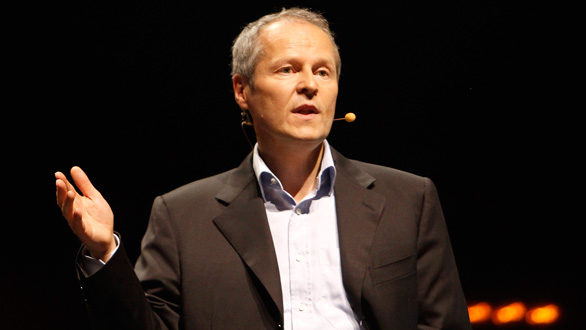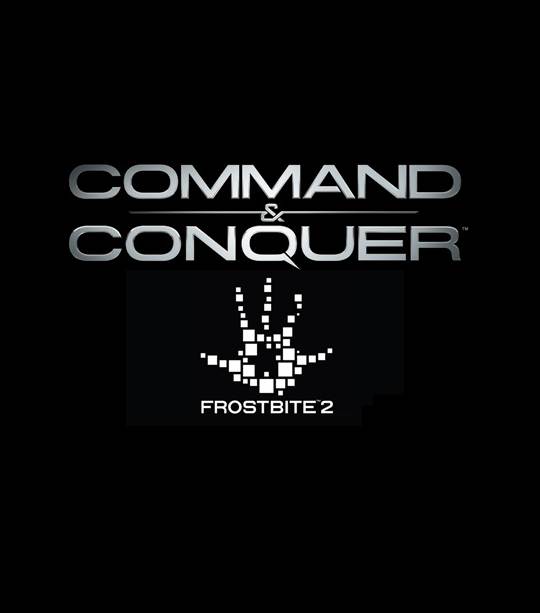In this year, the free-to-play market has grown by leaps and bounds. We got the exquisite Tribes: Ascend, which did things right by throwing a coffin-load of content at you for a paltry sum. It also opened up tons of benefits, but was never necessary to enjoy the main game. The model impressed enough people regardless, as publishers like EA announced they’re journeying into the F2P realm with one of their biggest franchises, Command & Conquer.

Ubisoft CEO Yves Guillemot is among one of the big publishers to embrace F2P. In conversation with GamesIndustry International, he outlines the benefits of choosing the model over getting boxes on shelves. It saves on manufacturing costs of retail copies and their distribution, one of the biggest reasons any developer needs a big-time publisher in today’s day and age to get their product out (besides exhorbitant funding). And while it may be a great cost-cutting measure in terms of gameplay and design, Guillemot was nice enough to point out that this shouldn’t lead to a decline in quality.
“We take content which we’ve developed in the past, graphics etc, and we can make cheaper games and improve them over time. What’s very important is that we change the content and make it a better fit to the customer as time goes on.”
Did we say ‘nice enough to point that out’? Because it doesn’t look like he did. It sounds more like “repacakaging yesterday’s content”. But hey, if developers are clever enough to get assets and graphics out of the way to focus on design for a fun game, there’s no complaint here. Not like they haven’t been doing that already with the Assassin’s Creed series for the past few years, but that’s another story.
Then again, why is Ubisoft extolling on the virtues of F2P in the first place?
Well, that’s simple: It cuts costs while still giving the same return that their retail copies have. Quoting the GamesIndustry article, Guillemot said, “the percentage of paying players is the same for free to play as it is for PC boxed product: around five to seven per cent.”
But the main reason Ubisoft finds this useful? Why, combating the 93-95 percent of PC piracy, of course! And not piracy in major countries, like the UK or US, no. They refer to “revenue from countries where we couldn’t previously – places where our products were played but not bought. Now with F2P we gain revenue, which helps brands last longer.” That’s an interesting phrase – “helps brands last longer”. If one didn’t know better, they’d think it meant “continue milking this for as long as we want”.
Forget that Ubisoft’s “attempts” to rectify piracy lead to it losing tens of millions of dollars when it first introduced it’s DRM system for Assassin’s Creed 2 PC. Forget the hurdles and utter lack of benefit such a system created for gamers, who had to restart missions simply because they had been disconnected from the Ubisoft server. And forget those people who don’t have an internet connection (yes, they still exist in today’s world) or, heaven forbid, can’t access Ubisoft’s server at any given point to play.

No, instead, focus your attention on “places where our products are bought but not played”. Is Guillemot referring to third world nations where Ubisoft’s distribution is completely bungled, where you’d have an easier time finding Assassin’s Creed: Brotherhood in the used games category than on the main store shelves (and we know how much of that money goes to Ubisoft)? Where the PC version of Assassin’s Creed 2 was simply missing for two months as the release date kept getting pushed forward? Ask anyone who’s ordered a game off Flipkart why they didn’t just go to the store to pick it up. Sometimes you’ll hear about convenience and pre-order bonuses, but the real reason is: Who can be sure it’ll be in stores to begin with? And that’s the nice-enough crowd with XBox 360s and PS3s. PC gamers have already wizened up to the fact that Ubisoft could care less about them.
Free-to-play is an alternative business model as much as it is a new kind of genre. It’s not an exit strategy for pushing franchises past their due date. It’s not an excuse to peddle the same old content in new wrapping paper for the masses. And if it’s the means with which you’ll counteract piracy in smaller countries, it’s wishful thinking, pure and simple.
Guillemot of course outlined how this isn’t meant to replace it’s “core” business structure. “We must be careful because the consoles are coming. People are saying that the traditional market is declining and that F2P is everything – I’m not saying that. We’re waiting for the new consoles – I think that the new consoles will give a huge boost to the industry, just like they do every time that they come.” F2P remains a way for them to break into new markets, and nothing more.
So wait: A plan to break into new territories without having to provide your core business products, at a reduced cost and development cycle without the need for manufacturing and distribution woes, simply because of a guesstimated piracy rate for some places while others are apparently squeaky clean?
Words, that don’t begin with “F” and end in “irst game developer mafia”, fail me in this case.















